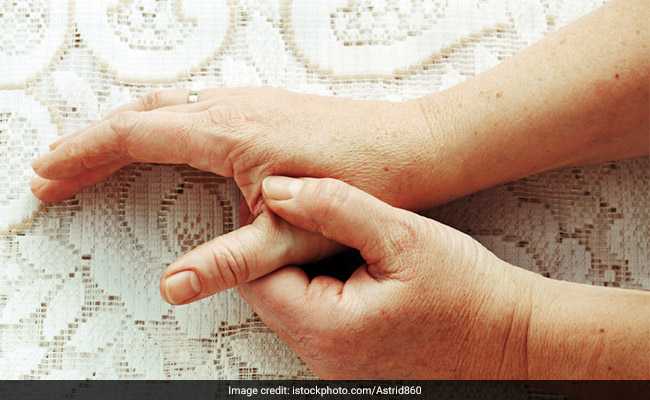
A person with rheumatoid arthritis (RA) may not seem to fit the usual profile of an "arthritis" patient since this word is usually associated with older people. RA, however, is a type of arthritis that affects people in the prime of their life, and women are more likely to be affected than men. It is an autoimmune disease which occurs when a person's immune system attacks his or her own body, for reasons that are not well understood. Research indicates that a person with RA is 2 to 4 times more likely to be depressed*, which can further worsen RA and compromise its treatment. Patients with RA produce excessive amounts of certain chemicals in the body called "proinflammatory cytokines". These chemicals can also contribute to depression. Many of the physical symptoms of RA can be seen or measured, and so they receive prompt treatment. But the mental impact of RA is unseen and can often be missed during diagnosis. This makes it critical for a doctor to recognize if a patient with RA is also depressed, and then address both conditions.
World Arthritis Day: Living with RA can lead to depression
A patient with RA has pain, stiffness and swelling in the joints, especially those in the fingers and wrists, which can over time lead to loss of function and disability. Understandably, many patients find it difficult to come to terms with a diagnosis of RA. Simple routine activities that involve movement of the hands and fingers, such as typing and cooking, or even holding or grasping of lightweight objects can become difficult tasks. All of this can cause a person to become depressed.

Rheumatoid arthritis cause pain and stiffness in joints
Photo Credit: iStock
Also read: Depression can worsen the pain and other symptoms seen in RA
Depression can worsen RA
Depression can worsen the pain and other symptoms seen in RA. Moreover, a person with RA is often at a higher risk of co-morbid conditions such as cardiovascular disease and heart attacks, and being depressed can further increase this risk.
If left untreated, depression may cause a person to feel less productive at the workplace and even lose his/her job. It can strain family and social relationships and drive a wedge in a marriage because of its impact on sexual intimacy. Undoubtedly, this can negatively affect a patient's mental health, further increasing depression.
Also read: See How These Top 5 Foods Can Ease Your Arthritis Pain Quickly And Effectively
Tackling depression and RA together
Together, rheumatoid arthritis and depression form a vicious cycle. RA can lead to depression, and depression in turn can increase the severity of RA and reduce treatment effectiveness.

Addressing depression in RA patients can help in treating RA effectively
Photo Credit: iStock
However, a patient's rheumatologist and a psychiatrist can together suggest the best course of treatment to address both these conditions. In addition to medication, a patient can also benefit from regular exercise, learning techniques to manage stress better and help from support groups to cope with the emotional and physical burden of both conditions. When both depression and RA are addressed, patients often respond better to treatment and go on to enjoy a better quality of life.
Also read: These Are The Foods You Should Include In Your Diet If You Have Arthritis
*Margaretten M, Julian L, Katz P, Yelin E. Depression in patients with rheumatoid arthritis: description, causes and mechanisms. Int J Clin Rheumtol. 2011;6(6):617-623. doi:10.2217/IJR.11.6
(Dr Rohini Samant - HOD Rheumatology at Hinduja Hospital - Mumbai)
Disclaimer: The opinions expressed within this article are the personal opinions of the author. NDTV is not responsible for the accuracy, completeness, suitability, or validity of any information on this article. All information is provided on an as-is basis. The information, facts or opinions appearing in the article do not reflect the views of NDTV and NDTV does not assume any responsibility or liability for the same.
Track Latest News Live on NDTV.com and get news updates from India and around the world

